10 Best Herbal Tinctures For Tooth Decay

Herbal tinctures have gained attention as natural alternatives for addressing tooth decay due to their antimicrobial and anti-inflammatory properties.
These tinctures are typically made by soaking herbs such as clove, neem, and myrrh in alcohol or glycerin to extract their active compounds. Clove oil, for example, contains eugenol, which is known for its ability to reduce dental pain and inhibit bacterial growth. While some studies suggest that herbal tinctures may help prevent or slow the progression of tooth decay, they should not replace professional dental care.
It is important to consult a dentist before using herbal remedies to ensure they are safe and effective for individual oral health needs.
Table of Contents
- 1. Salvia (Salvia officinalis)
- 2. Aloe vera (Aloe barbadensis)
- 3. Black pepper (Piper nigrum)
- 4. Ceylon cinnamon (Cinnamomum verum)
- 5. Eucalyptus (Eucalyptus globulus)
- 6. Oregano (Origanum vulgare)
- 7. Ginger (Zingiber officinale)
- 8. Cumin (Cuminum cyminum)
- 9. Rosemary (Rosmarinus officinalis)
- 10. Licorice (Glycyrrhiza glabra)
1. Salvia (Salvia officinalis)

Salvia officinalis, commonly known as sage, has been traditionally used for its antimicrobial and anti-inflammatory properties, making it a potential candidate for herbal tinctures aimed at preventing or treating tooth decay.
These tinctures are typically prepared by steeping dried sage leaves in alcohol, allowing the active compounds such as thujone and rosmarinic acid to be extracted. The antimicrobial effects of sage tinctures may help reduce the growth of bacteria like Streptococcus mutans, which are primary contributors to dental caries. While preliminary studies suggest promise, more clinical research is needed to confirm their efficacy and safety for oral use.
As a complementary therapy, sage tinctures may support oral hygiene routines but should not replace professional dental care.
2. Aloe vera (Aloe barbadensis)
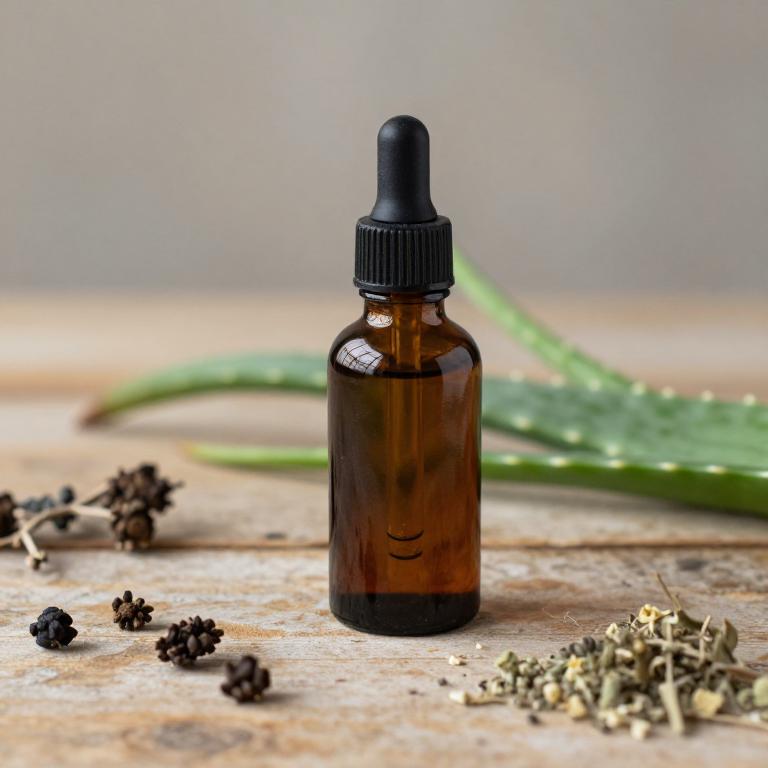
Aloe barbadensis, commonly known as aloe vera, has been traditionally used for its healing properties, and its herbal tinctures are gaining attention for their potential role in preventing and treating tooth decay.
The tinctures contain antimicrobial compounds that can help reduce the presence of harmful bacteria in the mouth, such as Streptococcus mutans, which are known to contribute to dental caries. Aloe vera's ability to promote tissue regeneration may also aid in the healing of early-stage cavities and gum inflammation. Additionally, its soothing and anti-inflammatory properties can help alleviate discomfort associated with tooth decay and gum disease.
While more clinical research is needed, preliminary studies suggest that aloe vera tinctures may be a natural and complementary approach to oral health care.
3. Black pepper (Piper nigrum)
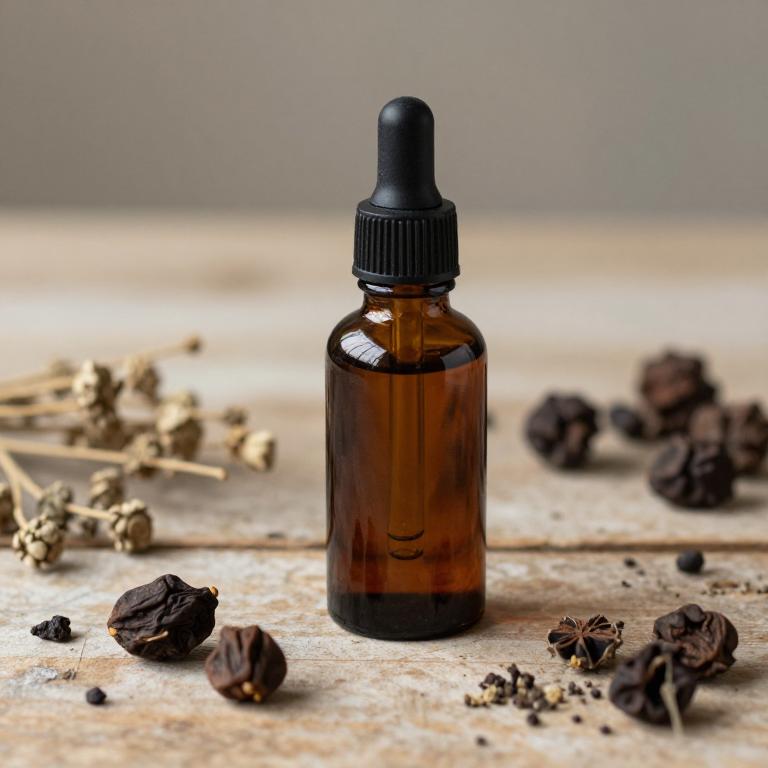
Piper nigrum, commonly known as black pepper, has been traditionally used in herbal medicine for its potential health benefits, including its antimicrobial and anti-inflammatory properties.
While it is not a substitute for conventional dental care, some herbal tinctures made from black pepper may help in reducing bacterial growth in the mouth, which can contribute to the prevention of tooth decay. These tinctures are often used as complementary remedies in holistic dentistry, though their effectiveness in treating existing cavities remains largely anecdotal and requires further scientific validation. When using black pepper tinctures, it is important to follow proper dilution guidelines to avoid irritation of the oral mucosa.
As with any herbal remedy, consulting a healthcare professional before incorporating it into a dental care routine is advisable.
4. Ceylon cinnamon (Cinnamomum verum)
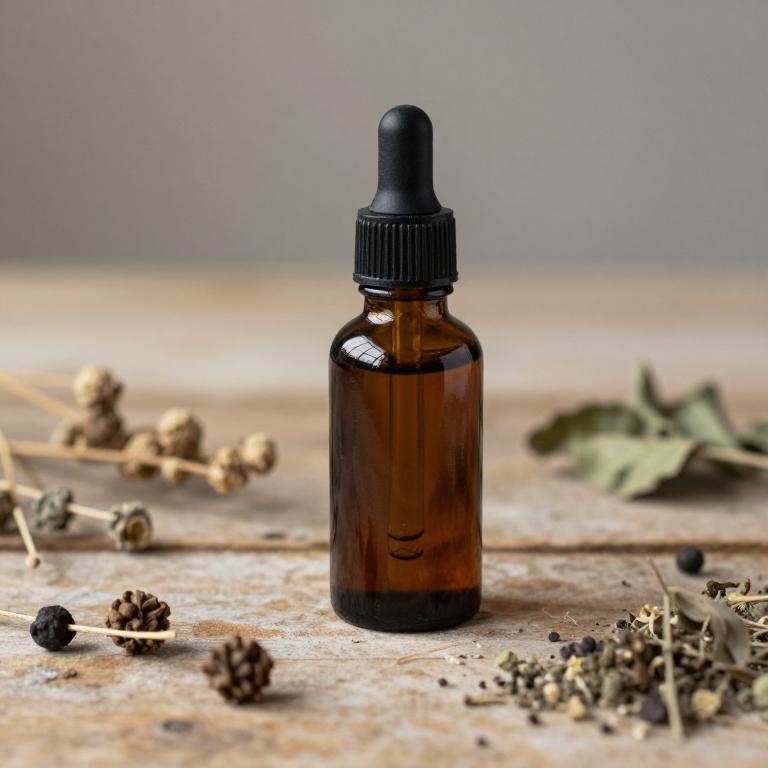
Cinnamomum verum, commonly known as true cinnamon, has been traditionally used in herbal medicine for its potential benefits in oral health, including the prevention and treatment of tooth decay.
The essential oils found in cinnamon, particularly cinnamaldehyde, possess antimicrobial properties that can help combat bacteria like Streptococcus mutans, which are major contributors to dental caries. When used in the form of a tincture, cinnamon can be applied directly to the affected areas of the mouth to reduce plaque buildup and inhibit bacterial growth. However, it is important to note that while cinnamon tinctures may offer some supportive benefits, they should not replace professional dental care or conventional treatments for severe tooth decay.
Consistent use of cinnamon-based tinctures, combined with good oral hygiene practices, may contribute to maintaining a healthier mouth environment.
5. Eucalyptus (Eucalyptus globulus)
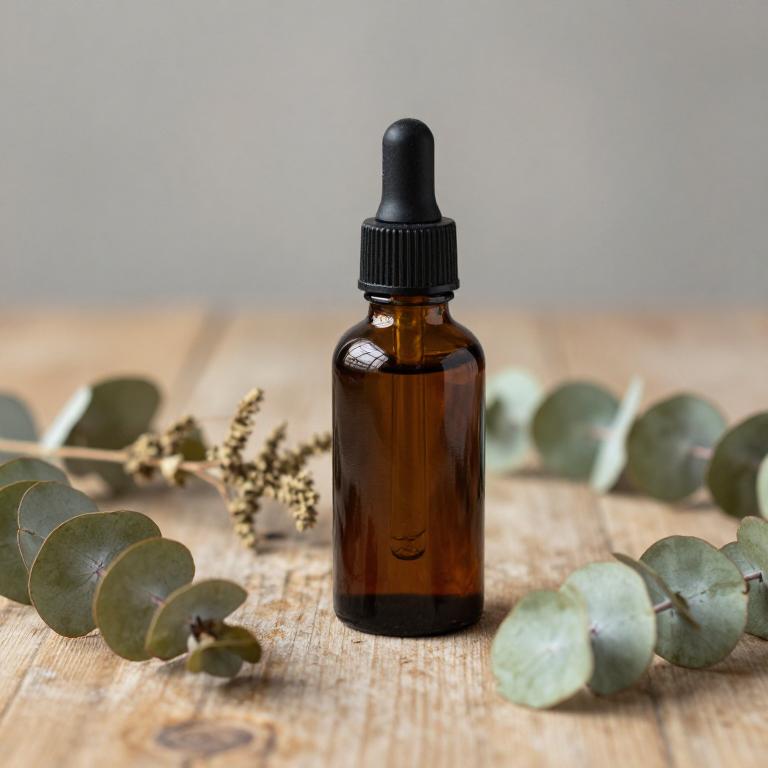
Eucalyptus globulus, commonly known as the Tasmanian blue gum, is a plant whose essential oil has been traditionally used for its antimicrobial and anti-inflammatory properties.
Herbal tinctures made from eucalyptus globulus are sometimes used as natural remedies to support oral health and may help in reducing bacteria associated with tooth decay. The active compounds in eucalyptus oil, such as eucalyptol and cineole, have shown potential in inhibiting the growth of Streptococcus mutans, a common cause of dental caries. However, while some preliminary studies suggest its efficacy, more clinical research is needed to confirm its role in preventing or treating tooth decay.
It is important to consult a dental professional before using any herbal tinctures as a substitute for conventional dental care.
6. Oregano (Origanum vulgare)
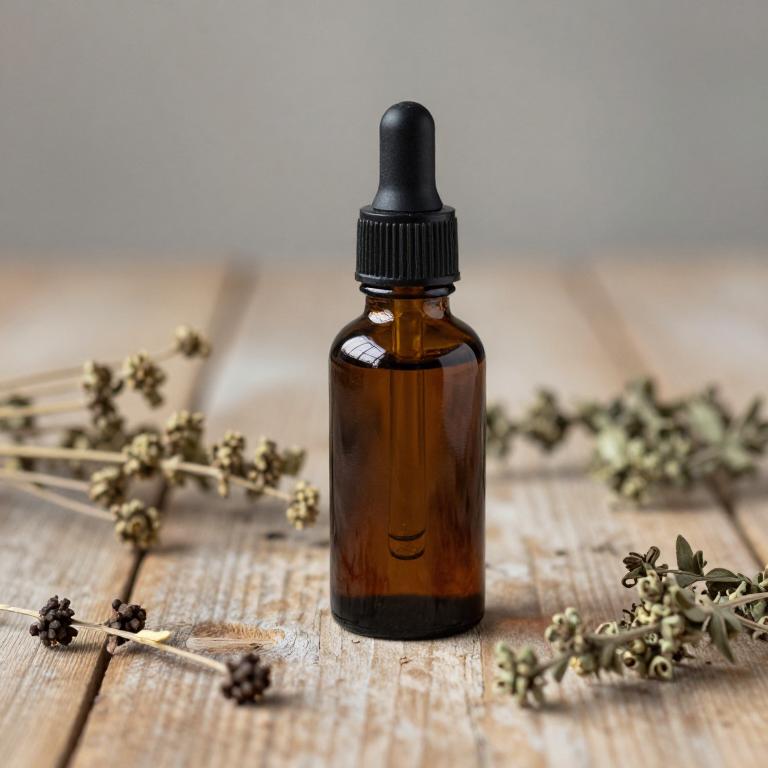
Origanum vulgare, commonly known as oregano, has been traditionally used for its antimicrobial and anti-inflammatory properties, making it a potential candidate for herbal tinctures aimed at preventing or treating tooth decay.
The essential oils in oregano, particularly carvacrol and thymol, exhibit strong antibacterial effects against Streptococcus mutans, a primary contributor to dental caries. When formulated into a tincture, these compounds can help reduce plaque formation and inhibit the growth of harmful oral bacteria. However, further clinical studies are needed to establish its efficacy and safety as a complementary treatment for tooth decay.
Despite its promising properties, oregano tinctures should not replace conventional dental care but may serve as a supportive natural remedy under professional guidance.
7. Ginger (Zingiber officinale)

Zingiber officinale, commonly known as ginger, has been traditionally used for its anti-inflammatory and antimicrobial properties, making it a potential candidate for herbal tinctures aimed at preventing or treating tooth decay.
The active compounds in ginger, such as gingerol and shogaol, may help reduce bacterial growth in the mouth, which is a key factor in the development of dental caries. When formulated into a tincture, ginger can be applied directly to the gums or teeth to soothe inflammation and inhibit plaque formation. However, while preliminary research suggests its potential benefits, more clinical studies are needed to confirm its efficacy in treating tooth decay.
As with any herbal remedy, it is advisable to consult a dentist or healthcare provider before using ginger tinctures as part of a dental care regimen.
8. Cumin (Cuminum cyminum)
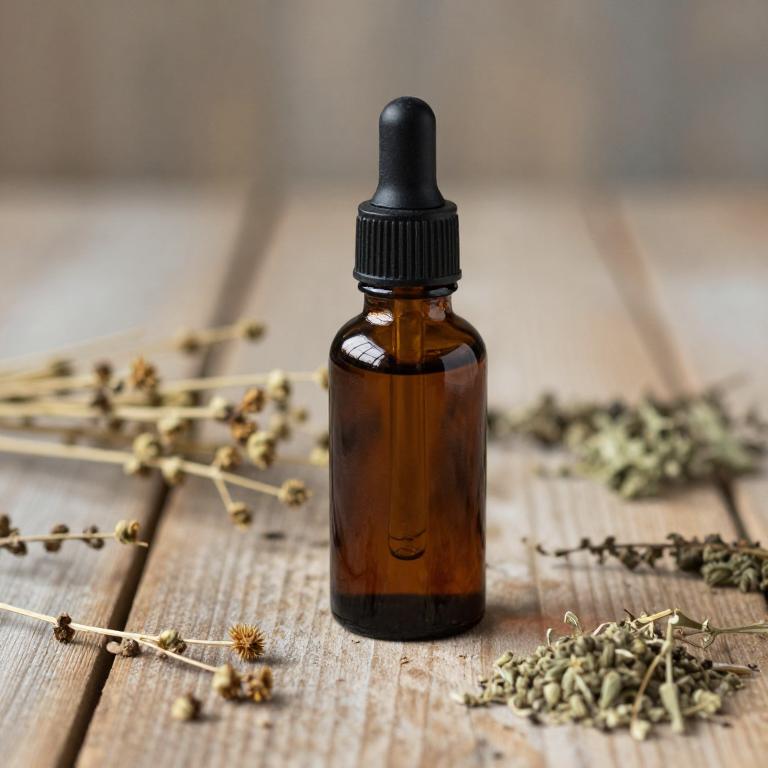
Cuminum cyminum, commonly known as cumin, has been traditionally used in herbal medicine for its potential benefits in oral health.
While cumin itself is not a direct treatment for tooth decay, its essential oils and compounds may help reduce bacterial growth in the mouth, which is a contributing factor to dental caries. Herbal tinctures made from cumin can be used as a natural remedy to support gum health and freshen breath, though they should not replace professional dental care. Some studies suggest that cumin's antimicrobial properties may inhibit the growth of Streptococcus mutans, a primary cause of tooth decay.
However, more research is needed to fully understand its efficacy and safety when used as a tincture for dental issues.
9. Rosemary (Rosmarinus officinalis)

Rosmarinus officinalis, commonly known as rosemary, is often used in herbal tinctures for its antimicrobial and anti-inflammatory properties, which can help in preventing and treating tooth decay.
These tinctures work by inhibiting the growth of harmful bacteria such as Streptococcus mutans, which are primary contributors to dental caries. The essential oils in rosemary, including cineole and camphor, have been shown to reduce plaque formation and promote oral hygiene. When used as part of a holistic dental care routine, rosemary tinctures may support remineralization of tooth enamel and reduce gum inflammation.
However, it is important to consult with a healthcare professional before using herbal tinctures, as they may interact with other medications or have potential side effects.
10. Licorice (Glycyrrhiza glabra)

Glycyrrhiza glabra, commonly known as licorice root, has been traditionally used in herbal medicine for its anti-inflammatory and antimicrobial properties.
When prepared as a tincture, it may help reduce inflammation and bacterial growth in the mouth, potentially supporting oral health. Some studies suggest that licorice tinctures may inhibit the growth of bacteria associated with tooth decay, such as Streptococcus mutans. However, due to its high glycyrrhizin content, prolonged use of licorice tinctures may lead to side effects like hypertension or fluid retention.
As a result, while licorice tinctures may offer some benefits for dental health, they should be used cautiously and under the guidance of a healthcare professional.